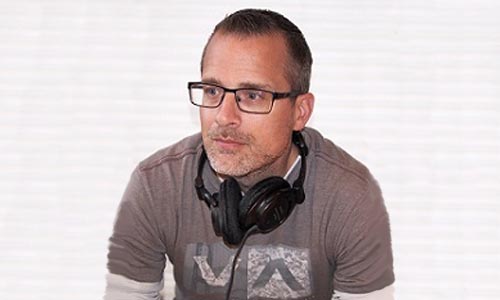(COLCHESTER, England) — On a cold, damp March morning, hundreds of people had turned out in Colchester, England, hoping for a glimpse of King Charles III. The gathering was, however, divided into two distinct groups. By far the larger of the two was there to support their king, but the smaller — those there to protest against him and the institution he heads — may well have been the louder.
The king and his wife, Queen Consort Camilla, were in the city a few hours from London to celebrate its newfound status as a city, to visit a library and to announce the name of a baby rhino recently born at the zoo. All very standard royal stuff.
But Charles’ visit attracted something that would have been unlikely to have happened had it been the late Queen Elizabeth II at Tuesday’s engagements. A group of about a dozen had gathered to greet the king with signs reading: “Not My King.” They booed loudly as the royal couple went past.
The protests were organized by Graham Smith, the head of an anti-monarchist campaign group, Republic, whose mission is “to see the monarchy abolished and the King replaced with an elected, democratic head of state,” according to its website.
Republic has gained a new momentum since the queen died. It has been gathering more support both financially and in recruits to its cause, according to Smith.
“Charles has not inherited the respect and deference and sycophancy that the Queen enjoyed,” Smith told ABC News after the King had gone. “And it’s a very different environment in which to campaign now.”
Protests against the late queen were extremely rare. Now a smattering of Republic supporters appear set to follow Charles wherever he goes. Last month when he visited Milton Keynes, the yellow placards were also being thrust in the air. On two of his first engagements as king, he had eggs hurled at him. Republic members were not behind the egg incidents.
“I think the relationship is changing. I think there was a great loyalty to the queen … but society has changed. Which is why opinion is changing,” Liz Stephens, who also works with Republic, told ABC News, adding, “The Royal Family is not representative of the society we live in.”
“There were occasional protests against the monarchy when Queen Elizabeth was alive but there is definitely a sense that the end of her reign has sparked a renewed sense of vigour amidst the republican movement,” notes ABC News Royal Contributor Victoria Murphy.
She added, “The queen consistently outpolled the monarchy in her popularity, and her reputation was pretty much untouchable by the end of her reign, but the same is not true for the new king. He has a challenge on his hands because a lot of questions are being asked about the monarchy globally right now and we have a lavish coronation about to happen at a time of financial hardship for many.”
“I think there’s a lot more of an appetite for challenging that wealth and misuse of money,” Smith said.
His group is planning a large protest at the coronation, with those yellow “Not My King!” placards set to pepper the king’s procession route with a flash of colour and dissent.
“I think it’s a disgrace. To think this country is in a mess and we’re spending out millions on a coronation,” Michael, who was one of the protesters in Colchester, told ABC News.
And there are signs that others feel as strongly as Michael does. Smith says that he has seen donations to Republic more than double in the last few years. In 2020 Republic had £100,000 in the bank, by 2022 it was £286,000; £70,000 of that coming in after the queen died, he said. They have hired more staff and moved to new offices. The donations are mostly coming in small amounts from lots of people, Smith notes and some money is coming from the sale of merchandise.
That merchandise largely aimed at the younger demographic with hoodies that read “Bring down the crown” and T-shirts with “#NotMyKing,” which may be a prudent move by Smith, as polls are indicating that the younger generation is losing interest in the monarchy. The most recent royal favorability poll from YouGov, published in January, said only 34% of 18- to 25-year-olds thought Britain should continue to have a monarchy.
While the King may not be as popular as his mother, he nevertheless enjoys widespread support, which was evident in Colchester. The larger group shouted down the protesters with cries of “God Save the King!”
“I think the Royal Family is so important to our country and we’ve got to show him our support,” a local resident named Natasha told ABC News. “I think we’ve got something special with the Royal Family and we’ve got to hold onto it. Sometimes there’s a bit of negativity surrounding it. But there’s a lot of support out there.”
“Further down the line we’ve got William and Kate who are a complete asset to the Royal Family as well,” she said.
Copyright © 2023, ABC Audio. All rights reserved.





